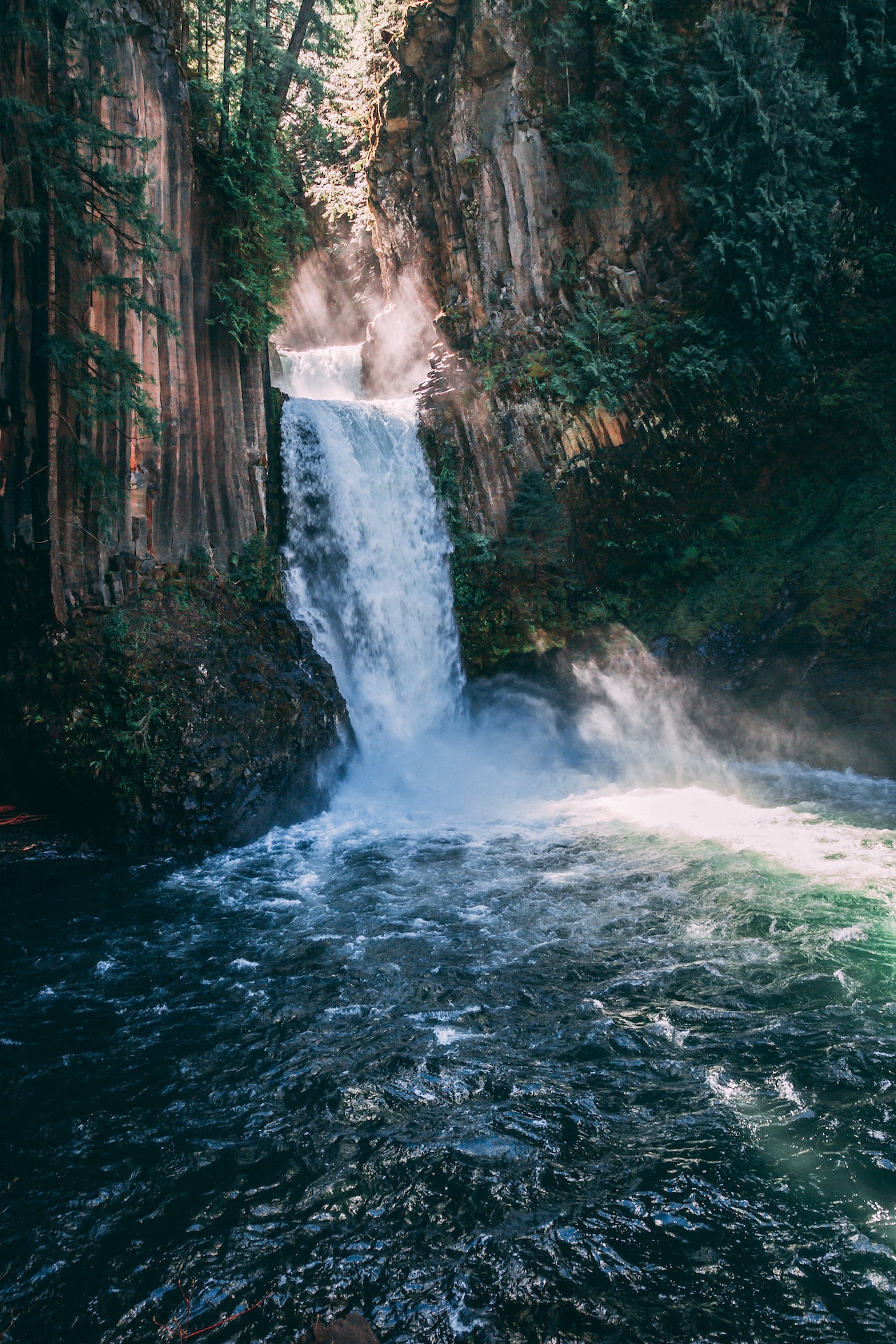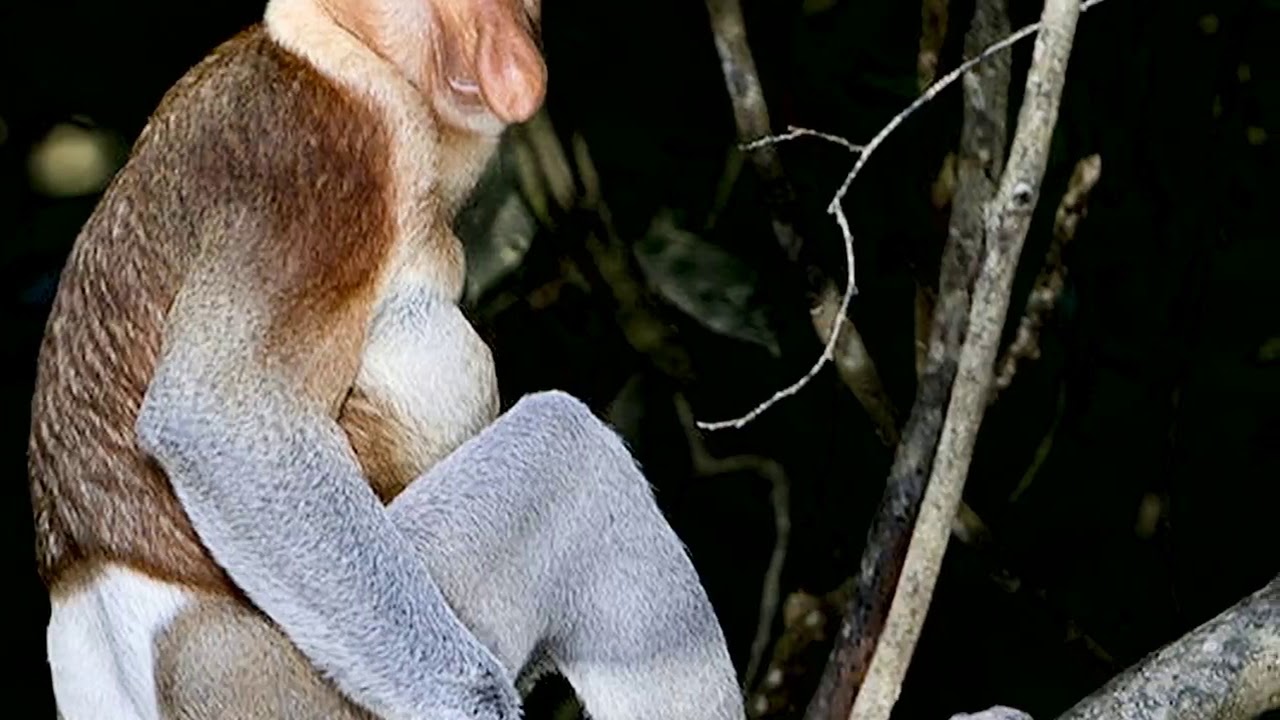Eco-tourism In Borneo's Rainforest - A Guide To Responsible Travel
Eco-tourism in Borneo's rainforest offers travelers a chance to explore one of the most biodiverse regions in the world while minimizing their impact on the environment.
Author:Paolo ReynaReviewer:James PierceJun 06, 20234.1K Shares198.5K Views

Eco-tourism in Borneo's rainforestoffers travelers a chance to explore one of the most biodiverse regions in the world while minimizing their impact on the environment.
Borneo is home to thousands of species of plants and animals, including the iconic orangutan. Eco-tourism initiatives in the region aim to protect this unique habitat while providing visitors with an immersive and educational experience.
In this article, we will explore the benefits of eco-tourism in Borneo's rainforest, as well as the various activities and attractions available to visitors.
Biodiversity Of Borneo's Rainforest
Borneo's rainforest is one of the most biodiverse places on Earth, with an incredibly rich and complex ecosystem. Here are some of the highlights of the biodiversity of Borneo's rainforest:
Flora
Borneo's rainforest is home to over 15,000 species of plants, including hundreds of species of trees, ferns, and orchids.
Fauna
The rainforest is also home to an incredible array of animals, including over 600 species of birds, 160 species of snakes, and 50 species of primates, including the endangered Bornean orangutan.
Insects
Borneo's rainforest is a hotspot for insect diversity, with over 10,000 species of ants and over 600 species of butterflies.
Marine Life
Borneo is also home to an incredibly diverse array of marine life, including whale sharks, sea turtles, and over 600 species of reef-building corals.
Endemic Species
Borneo's rainforest is home to many endemic species that are found nowhere else in the world, including the Bornean pygmy elephant and the Bornean clouded leopard.
Sustainable Tourism In Borneo's Rainforest
Borneo's rainforest is one of the oldest rainforests in the world and is home to a diverse range of flora and fauna. Due to human activities such as deforestation, mining, and agriculture, the rainforest has suffered significant damage over the years.
As a result, eco-tourism has emerged as a way to promote sustainable tourism and conservation efforts in the region.
Sustainable tourism is an approach to tourism that seeks to minimize the negative impact of tourism on the environment and local communities while maximizing the benefits.
In Borneo's rainforest, sustainable tourism involves working with local communities to promote eco-tourism and conservation, while also ensuring that the tourism activities do not harm the environment.
One of the key aspects of sustainable tourism in Borneo's rainforest is responsible tourism. This involves educating tourists about the importance of conservation and the need to protect the environment.
Responsible tourism also involves minimizing waste and reducing the carbon footprint of tourism activities.
Another aspect of sustainable tourism in Borneo's rainforest is community-based tourism. This involves working with local communities to develop tourism activities that showcase their culture and traditions.
By involving local communities in tourism, sustainable tourism can help to generate income and employment opportunities while also promoting cultural exchange.
Overall, sustainable tourism in Borneo's rainforest is an important way to promote conservation and protect the environment while also generating economic benefits for local communities.
Activities In Eco-tourism In Borneo's Rainforest
As one of the world's oldest and most biodiverse rainforests, Borneo's rainforest is a popular destination for eco-tourism. Here are some of the activities you can enjoy while exploring the region sustainably:
Wildlife Watching
Borneo's rainforest is home to some of the rarest and most fascinating animals on earth, such as orangutans, proboscis monkeys, pygmy elephants, and clouded leopards.
With the help of a knowledgeable guide, you can spot these animals in their natural habitat without disturbing them.
Trekking
Trekking through Borneo's rainforest is an excellent way to get up close and personal with the lush vegetation, diverse wildlife, and stunning waterfalls. With various routes available, you can choose the level of difficulty that suits your fitness level.
River Cruises
A river cruise along the Kinabatangan River is a great way to experience the region's diverse ecosystem. You can spot wildlife along the riverbanks and enjoy the stunning scenery.
Canopy Walks
Borneo's rainforest has several canopy walkways that offer an unforgettable experience. These elevated bridges give you a bird's eye view of the rainforest and are perfect for photography.
Cultural Experiences
Eco-tourism in Borneo's rainforest also includes opportunities to learn about local cultures and traditions. You can visit tribal villages and witness their traditional dances, music, and food.
Responsible Travel Tips For Eco-tourism In Borneo's Rainforest
Responsible travel is an essential part of eco-tourism in Borneo's rainforest. As a traveler, you can play a significant role in protecting the environment, supporting local communities, and preserving the biodiversity of the region.
Here are some responsible travel tips to keep in mind during your eco-tourism adventure in Borneo's rainforest:
- Choose eco-friendly accommodations- Look for eco-friendly lodges or hotels that practice sustainable tourism. These accommodations use renewable energy sources, conserve water, and minimize waste.
- Support local communities- Visit local communities and buy their handmade crafts to support their livelihoods. You can also participate in community-based tourism programs that are designed to benefit the local people.
- Respect the culture and traditions- Be respectful of the local culture and traditions. Dress modestly, ask for permission before taking photos, and learn a few phrases in the local language.
- Use eco-friendly products- Use eco-friendly products such as reusable water bottles, cloth bags, and biodegradable toiletries to reduce your impact on the environment.
- Follow the rules and regulations- Follow the rules and regulations set by the authorities to protect the environment and wildlife. Do not litter, disturb the wildlife, or venture off the designated trails.
- Choose responsible tour operators - Choose tour operators that follow sustainable tourism practices, have a low impact on the environment, and support the local community.
Top Eco-tourism Destinations In Borneo's Rainforest
Here are some top eco-tourism destinations in Borneo's rainforest:
Danum Valley Conservation Area
This protected area is home to one of the oldest rainforests in the world and is a hotspot for wildlife, including orangutans, pygmy elephants, and clouded leopards.
Kinabalu Park
This UNESCO World Heritage Site is known for its diverse plant life and is home to Mount Kinabalu, one of the tallest peaks in Southeast Asia.
Sepilok Orangutan Rehabilitation Centre
Located in Sabah, this center is dedicated to rehabilitating orphaned and injured orangutans and preparing them for reintroduction into the wild.
Bako National Park
This park, located in Sarawak, is known for its diverse landscapes, including rocky cliffs, dense rainforest, and mangrove forests, and is home to a variety of wildlife, including proboscis monkeys and hornbills.
Tabin Wildlife Reserve
This protected area in Sabah is home to a range of wildlife, including pygmy elephants, Bornean rhinoceros, and orangutans, as well as rare bird species like the Bornean Bristlehead.

TOP 5 ECOTOURISM ATTRACTIONS IN SABAH, BORNEO
People Also Ask
How Can I Participate In Eco-tourism In Borneo's Rainforest?
You can participate in eco-tourism in Borneo's rainforest by booking a tour with an eco-tourism company that is committed to sustainable tourism practices.
These tours usually involve activities such as guided jungle treks, wildlife spotting, and visits to local indigenous communities.
What Are Some Endangered Species That Can Be Found In Borneo's Rainforest?
Borneo's rainforest is home to a wide range of endangered species, including the Bornean orangutan, pygmy elephant, proboscis monkey, and clouded leopard.
By participating in eco-tourism in Borneo's rainforest, you can help to support conservation efforts aimed at protecting these and other threatened species.
How Does Eco-tourism Benefit The Local Communities In Borneo's Rainforest?
Eco-tourism can provide economic opportunities for local communities in Borneo's rainforest through the creation of jobs in tourism-related industries.
Additionally, eco-tourism can help to promote cultural exchange and raise awareness about the importance of conservation efforts.
What Should I Look For In An Eco-tourism Company In Borneo's Rainforest?
When choosing an eco-tourism company in Borneo's rainforest, look for companies that prioritize sustainability, respect for local cultures and traditions, and responsible tourism practices.
These companies should also have knowledgeable and experienced guides who can help you to make the most of your eco-tourism experience.
How Can I Minimize My Impact On The Environment When Participating In Eco-tourism In Borneo's Rainforest?
You can minimize your impact on the environment when participating in eco-tourism in Borneo's rainforest by following the "leave no trace" principle.
This means packing out all of your trash, avoiding littering or damaging natural features, and being respectful of wildlife and indigenous communities.
Additionally, consider offsetting the carbon emissions from your travel to Borneo by supporting a carbon offset program.
Final Thoughts
Eco-tourism in Borneo's rainforest offers visitors a unique opportunity to experience the natural beauty of one of the world's most diverse ecosystems while promoting sustainable travel practices.
By participating in eco-tourism activities, travelers can learn about the importance of preserving the rainforest and supporting local communities.
Whether it's exploring the jungle canopy on a guided trek or observing endangered wildlife in their natural habitat, eco-tourism in Borneo's rainforest offers an unforgettable adventure that is both educational and environmentally responsible.

Paolo Reyna
Author
Paolo Reyna is a writer and storyteller with a wide range of interests. He graduated from New York University with a Bachelor of Arts in Journalism and Media Studies.
Paolo enjoys writing about celebrity culture, gaming, visual arts, and events. He has a keen eye for trends in popular culture and an enthusiasm for exploring new ideas. Paolo's writing aims to inform and entertain while providing fresh perspectives on the topics that interest him most.
In his free time, he loves to travel, watch films, read books, and socialize with friends.

James Pierce
Reviewer
James Pierce, a Finance and Crypto expert, brings over 15 years of experience to his writing. With a Master's degree in Finance from Harvard University, James's insightful articles and research papers have earned him recognition in the industry.
His expertise spans financial markets and digital currencies, making him a trusted source for analysis and commentary. James seamlessly integrates his passion for travel into his work, providing readers with a unique perspective on global finance and the digital economy.
Outside of writing, James enjoys photography, hiking, and exploring local cuisines during his travels.
Latest Articles
Popular Articles